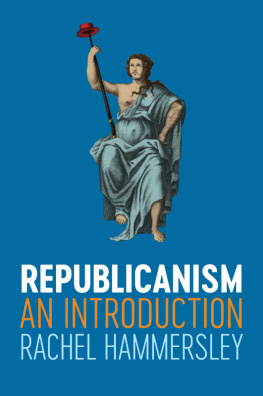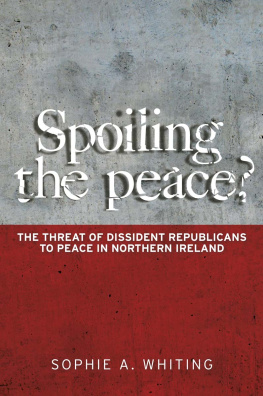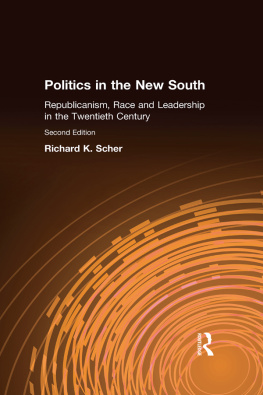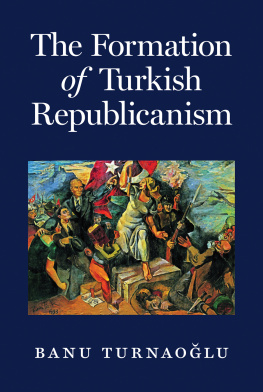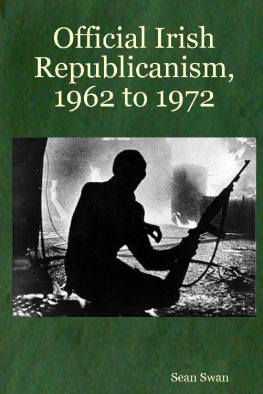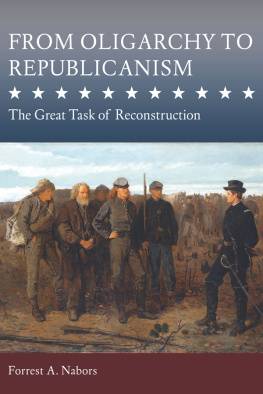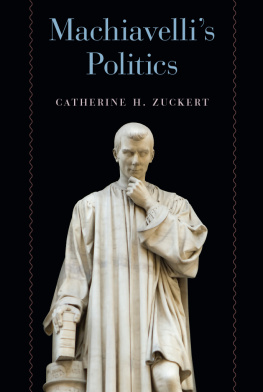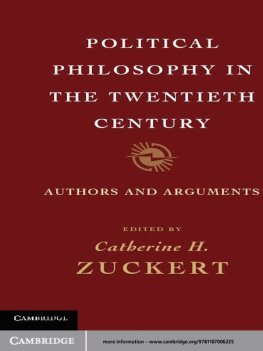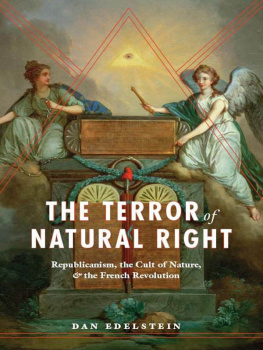Zuckert - Natural Rights and the New Republicanism
Here you can read online Zuckert - Natural Rights and the New Republicanism full text of the book (entire story) in english for free. Download pdf and epub, get meaning, cover and reviews about this ebook. year: 1994, publisher: Princeton UP, genre: Politics. Description of the work, (preface) as well as reviews are available. Best literature library LitArk.com created for fans of good reading and offers a wide selection of genres:
Romance novel
Science fiction
Adventure
Detective
Science
History
Home and family
Prose
Art
Politics
Computer
Non-fiction
Religion
Business
Children
Humor
Choose a favorite category and find really read worthwhile books. Enjoy immersion in the world of imagination, feel the emotions of the characters or learn something new for yourself, make an fascinating discovery.

Natural Rights and the New Republicanism: summary, description and annotation
We offer to read an annotation, description, summary or preface (depends on what the author of the book "Natural Rights and the New Republicanism" wrote himself). If you haven't found the necessary information about the book — write in the comments, we will try to find it.
Zuckert: author's other books
Who wrote Natural Rights and the New Republicanism? Find out the surname, the name of the author of the book and a list of all author's works by series.
Natural Rights and the New Republicanism — read online for free the complete book (whole text) full work
Below is the text of the book, divided by pages. System saving the place of the last page read, allows you to conveniently read the book "Natural Rights and the New Republicanism" online for free, without having to search again every time where you left off. Put a bookmark, and you can go to the page where you finished reading at any time.
Font size:
Interval:
Bookmark:
Natural Rights
and the New Republicanism
and the New Republicanism
Michael P. Zuckert
PRINCETON UNIVERSITY PRESS
PRINCETON, NEW JERSEY
Copyright 1994 by Princeton University Press
Published by Princeton University Press, 41 William Street,
Princeton, New Jersey 08540
In the United Kingdom: Princeton University Press,
Chichester, West Sussex
All Rights Reserved
Library of Congress Cataloging-in-Publication Data
Zuckert, Michael, 1942
Natural rights and the new republicanism / Michael Zuckert.
p. cm.
Includes bibliographical references (p. ) and index.
ISBN 0-691-03463-X (CL)
1. Natural law. 2. Republicanism. 3. Locke, John, 16321704.
4. Political scienceHistory17th century. 5. Political
scienceHistory18th century. I. Title.
JC571.Z83 1994 323.01dc20 94-5498 CIP
This book has been composed in Electra
This book was prepared in part under a grant from the
Woodrow Wilson International Center for Scholars,
Washington, D.C. The views expressed herein are those
of the author and are not necessarily those of the
Woodrow Wilson Center.
Princeton University Press books are printed
on acid-free paper and meet the guidelines
for permanence and durability of the Committee
on Production Guidelines for Book Longevity
of the Council on Library Resources
Printed in the United States of America
10 9 8 7 6 5 4 3 2 1
FOR CATHERINE
Whereof one cannot speak, thereof one must be silent.
CHAPTER ONE
Aristotelian Royalism and Reformation Absolutism: Divine Right Theory
CHAPTER TWO
Aristotelian Constitutionalism and Reformation Contractarianism: From Ancient Constitution to Original Contract
CHAPTER THREE
Contract and Christian Liberty: John Milton
CHAPTER FOUR
Whig Contractarianisms and Rights
CHAPTER FIVE
The Master of Whig Political Philosophy
CHAPTER SIX
A Neo-Harringtonian Moment? Whig Political Science and the Old Republicanism
CHAPTER SEVEN
Locke and the Reformation of Natural Law: Questions Concerning the Law of Nature
CHAPTER EIGHT
Locke and the Reformation of Natural Law: Two Treatises of Government
CHAPTER NINE
Locke and the Reformation of Natural Law: Of Property
CHAPTER TEN
Locke and the Transformation of Whig Political Philosophy
LONG, LONG AGO, in what now seems a galaxy far, far away (actually, five years ago, in Washington, D.C.), I started out to write a study of the American founding. One thing led to another, however, and the result is the present book, devoted almost exclusively to the seventeenth and early eighteenth centuries in England. The ultimate aim remains the same: elucidating the American founding; as they might say in Hollywood, this book is the prequel to the one originally planned. The thesis of the original book can be quickly and easily put: with the American founding emerged a new kind of politics constituted by a new commitment to the philosophy of natural rights and dedicated to a new kind of republicanism based thereon. In a sense, that remains the thesis of the present book, although only a little is said about the way these themes work themselves out in the American materials. These two books are both parts of a broader project that bestrides two current, intertwined controversies or problemsthe America problem and the modernity problem.
The initial goal of my inquiry into the earlier British materials is negativeto prove that the natural rights/social contract philosophy of the American Revolution was by no means the common sense of the subject for the English in the seventeenth century, as Thomas Jefferson claimed it was for the Americans in the eighteenth. My thesis about the American founding runs afoul of two sometimes intermingled, sometimes opposed views. One line of thought rejects both parts of my thesis, arguing that the Americans are best understood neither in terms of the new liberal philosophy of natural rights nor as proponents of a new republicanism congruent therewith, but rather as devotees of an old classical or civic humanist republicanism much at odds with modern natural rights liberalism. The other point of view concedes the role of the natural rights/social contract theory in the thought of the American founding generation, but denies it any claim to novelty. English Whig (or opposition, or parliamentary) thought of the seventeenth century is permeated with, if not monopolized by, contractarian themes, and, as the saying goes, a contract is a contract is a contract. The Americans, according to this line of thought, were merely following in the theoretical steps of some or all of their opposition predecessorsthose who made the Glorious Revolution of 168889; the Whigs who promoted Exclusion in the 1670s; the men who fought the Civil War in the 1640s; the leaders of the opposition to James I and Charles I before the Civil War. Both views respond to the America problem with an answer about modernity: either that America is not in its origins modern, or that modernity is best understood as a continuation or modification of something old.
Both views merit serious consideration, even though, as I think, both are false. The sponsors of the theory of the old republicanism have brought to the fore thinkers and styles of thought that had been neglected in the past and are undeniably importantindeed, they are important precisely for their contribution to the new natural rights republicanism. Likewise, a reconsideration of opposition thought with an eye to its contractarianism is also revealing, in part because the real differences between most of it and the late-emerging Lockean variety reveals much about the latters modernity.
Because of this, it became increasingly clear that establishing my claims about the political innovativeness and modernity of the Americans required a much more extensive foray into what came before the American founding than I had originally planned. Thus, an introductory chapter became a thick book of its own.
St. Paul
December 1992
IT IS CUSTOMARY for an author to acknowledge help for whats good and to absolve others from responsibility for whats bad. This custom proves that the ancient distinction between nature and convention is too starkly drawn, for we scholars cannot go very long without recognizing our debts to others for insights, information, inspiration, and many other things. Nor can we go far without recognizing the stubbornness and other limits that prevent us from benefitting as much as we might from the help of others. I feel a deep obligation of gratitude to many other scholars, including those with whom I disagree. I have attempted always to turn my consideration of their work into something more positive than critique, and believe this to be a very different and better book because I have learned from them even when I have been unable to agree with them. The debts to those from whom I have more directly learned should be evident from my footnotes.
Many of the ideas in this book first saw the light of day, all squinting and blurry-eyed, in my classes at Carleton College. The intelligence, intellectual curiosity, and interest of my students have not only contributed to sharpening and improving many of the ideas here but have been a source of stimulation and sustenance to me for many years. With students like these, it remains easy to remember why teaching seemed to me all those years ago the most wonderful career choice one could make.
Professional colleagues in political science, history, literature, religion, and philosophy have read one or another part of this book and have been unfailingly generous of their time and effort, and sometimes with their criticisms. This project has been ripening over many years, so I am reluctant to single out any by name for fear of failing to mention all.
Next pageFont size:
Interval:
Bookmark:
Similar books «Natural Rights and the New Republicanism»
Look at similar books to Natural Rights and the New Republicanism. We have selected literature similar in name and meaning in the hope of providing readers with more options to find new, interesting, not yet read works.
Discussion, reviews of the book Natural Rights and the New Republicanism and just readers' own opinions. Leave your comments, write what you think about the work, its meaning or the main characters. Specify what exactly you liked and what you didn't like, and why you think so.

